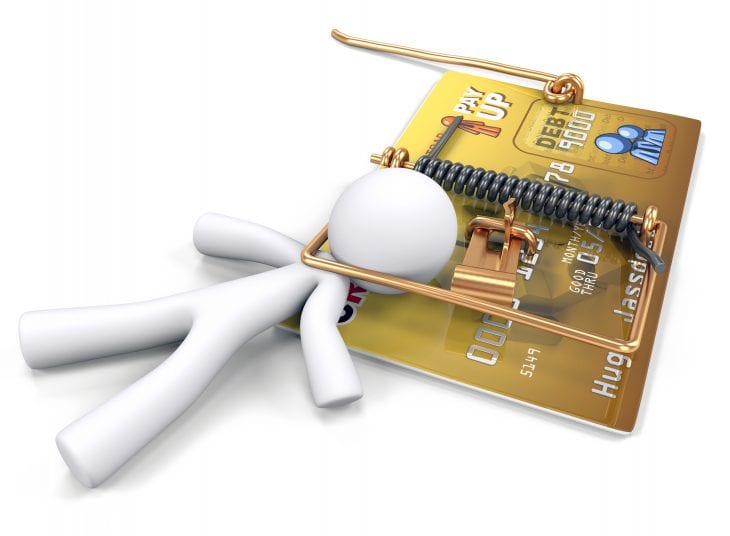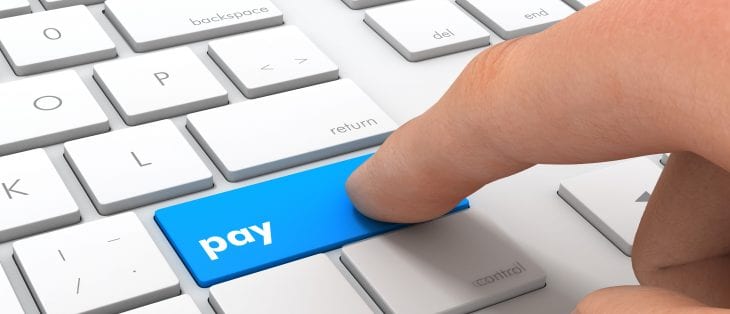You’ve heard this story before: someone gets a new credit card on the mail and thinks she has all the money to spend. So, she goes on a shopping spree, books tickets for a vacation and dines at the fanciest restaurant in town. She is living the good life—or at least until she wakes up and realizes that she is drowning in credit card debt.
The only sad truth to this story is that, it is happening to you. Credit card debt is such a common financial problem these days not only because a lot of people are dependent on credit cards, but also because most of them don’t know how to use it wisely. But what really causes credit card debt?
Contents
Unplanned Financial Emergencies
There will always be rainy days, so they say, and when those times come, the first thing that many people rely on to cover the expenses is their credit card. Unplanned expenses can really put a dent on your budget, especially if you have poor financial management skills, but relying heavily on your credit card to save you from these situations isn’t the smartest solution.

Img source: themocracy.com
Remember that every time you charge something on your card, it will have a corresponding interest rate, which means that you’re paying more than what you actually need. This is why it really matters to have an emergency fund that will help you cover these unplanned expenses without paying extra for the interest.
Credit Card Reward Tricks
Credit card companies have their way of enticing consumers to spend their balances, and they usually come in the form of rewards. One good example is getting cash back after reaching a certain amount of spending, which can be very lucrative to a lot of people.
But the truth is, you’re actually spending more paying for interest and other charges than what you got in return for spending money. So before you fall prey to the next credit card reward offer, make sure to read the fine print first. If an offer seems too good to be true, avoid it. Also, if you can’t afford to pay the balance that will get you the reward every month, then it’s better to not spend it.
Overspending

Img source: selectquote.com
Having a credit card feels like having a huge amount of money to spend on anything you want—and it’s exactly what a lot of people do. Overspending is the most common reason for credit card debt and the only way to avoid is to look at what you are capable of paying to know how much you can afford to spend. Never spend more than what you make and time your spending properly so your card’s due date corresponds to the time you get paid. This will help you ensure that you don’t miss any payments.
Having too Many Credit Cards
It’s so easy to get lured into getting more than just one credit card. After all, they can be very beneficial if used properly. But a lot of people make the mistake of getting multiple cards and using them up at once. Having several cards make it harder to keep track of your due dates, which can cause missed payments that turn into high-interest rates and extra charges.
It will also be more difficult for you to pay off balances if you have too many cards. Make sure to only get as much as you can manage efficiently and keep track of repayments to avoid extra charges.
Making Minimum Payments

Img source: xteyuuzmnxim.soapk.xyz
Credit card companies set a minimum payment each month, but it doesn’t mean that you can just settle for that amount each time. Minimum payments may help you avoid the extra fees, but it will only make your payment time longer because these amounts are just enough to cover interest rates. If you really want to be debt-free fast, make sure to pay the full balance each month if you can and only make minimum payments if you are running low on budget.
Getting Help With Debt
Finally, getting help dealing with debt is not something that you should be afraid or ashamed of because it only means that you’re brave enough to face your financial problem.
If you fell prey to one of these mistakes, you can always turn things around by being more responsible of your finances and finding ways to make yourself debt-free in the soonest possible time. Start today by getting help and be on your way to financial freedom.
